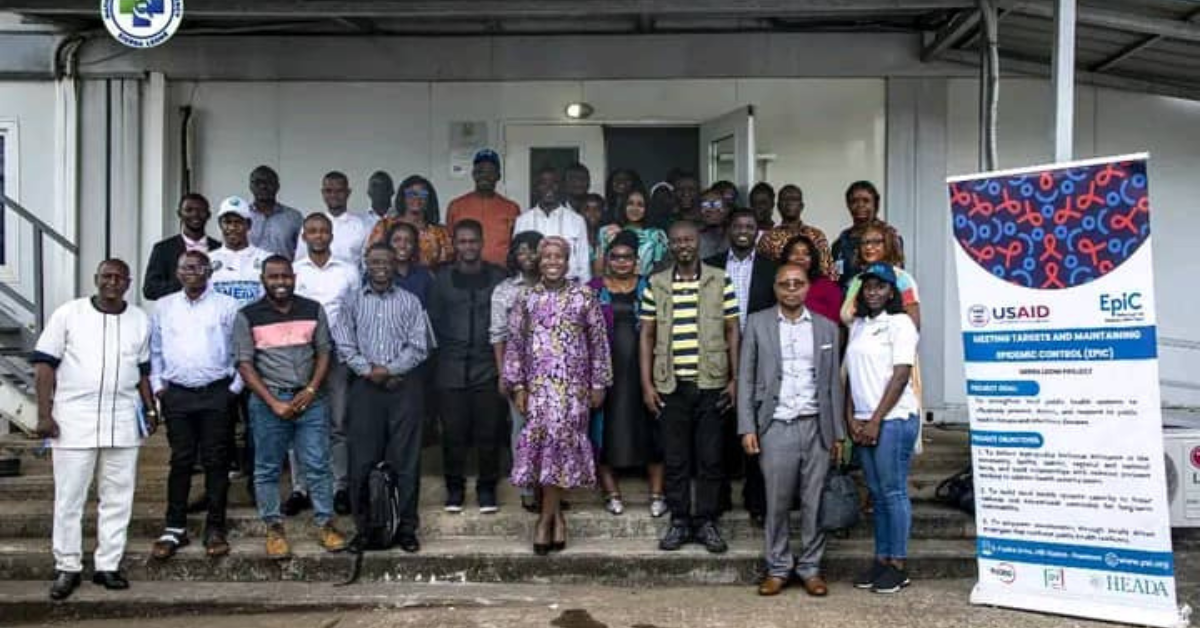The National Public Health Agency (NPHA), in partnership with Health and Development in Action (HEADA) and other key stakeholders, launched the Epic Project today in Freetown.
The initiative aims to address pressing public health challenges in Sierra Leone, specifically focusing on antimicrobial resistance, zoonotic disease surveillance, and enhancing laboratory systems.
Dr. Mohamed Alex Vandi, Deputy Executive Director of the NPHA, emphasized the need for multi-sectoral collaboration, noting that sustainable health improvements require coordinated efforts across government agencies, NGOs, and private organizations. “The Epic Project represents a unified vision for stronger health systems in Sierra Leone, and we are committed to working with all sectors to achieve these goals,” Dr. Vandi stated.
James Bangura, Country Director of HEADA, outlined the project’s One Health approach, which integrates human, animal, and environmental health to provide a comprehensive solution to complex health threats. He highlighted that the project has received a Global Health Security mandate aimed at bolstering local district health systems to prevent, detect, and respond to infectious diseases, particularly those originating in wildlife and affecting environmental health.
A critical part of the project’s mission will involve wildlife health surveillance in communities where zoonotic disease risks are high. For example, Mr. Bangura raised concerns about a community in Western Rural called Ferreh Water, where residents rely on a cave stream that is also a habitat for bats. He noted the potential health risks, as bats can transmit pathogens like the Marburg virus through contamination of water sources.
The Epic Project aligns with Sierra Leone’s National Action Plan for Health Security (NAPHS), which seeks to strengthen national health systems against public health threats. NAPHS has been conducting research on zoonotic diseases, including the Marburg virus in bats, as part of its contribution to Global Health Security.
Representatives from USAID, WHO, the U.S. government, and Sierra Leone’s Ministry of Environment and NAFS (National Animal Health and Food Safety Agency) attended the kick-off meeting, voicing their support for the project.











